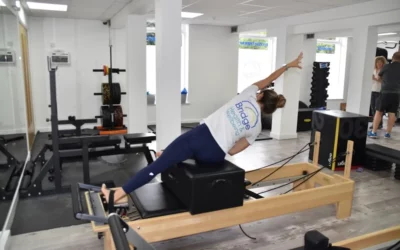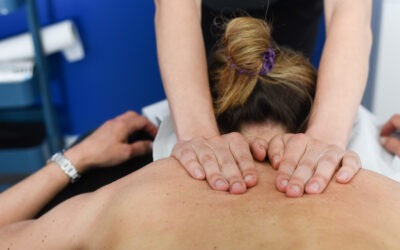The MCL is one of the 4 main ligaments found in the knee which provide mechanical stability and act in the process of what we call proprioception. To make things simple proprioception applies to the process of balance and our conscious and unconscious awareness of where out joints/limbs are in space. The MCL is found running down the inside of the knee, attaching from the femur onto the tibia. Its job is to provide stability to this side of the joint.

Injuring the MCL is fairly common and usually happens when the forced inwards (into valgus). This can happen either via contact to the outside of the knee or in a non-contact situation where the foot slips outwards.

Pain will be felt on the inside of the joint and can be accompanied by swelling and sometimes bruising. If the ligament has been injured severely you may notice some instability of the knee.
We grade all ligament injuries using a 3-point grading system:
- Grade 1 is a mild injury and may only involve a few fibres.
- Grade 2 is more significant and would be around 50-75% of the ligamentous fibres.
- Grade 3 is a complete rupture of the ligament.
Grade 1 and 2 can definitely be managed with physiotherapy, with a grade 2 injury taking 8-10 weeks to recover from. A grade 3 injury is very significant and will need orthopeadic involvement from the start and most of the time will require surgery. The main point to remember is getting an assessment as quickly as possible so that the correct diagnosis can be made, and the right rehab program initiated.
If you have injured your knee in this way, please do get in touch so that we can help. To speak to our physiotherapist Paul or book your physiotherapy appointment at our health and wellness centre on Bridge Street in Christchurch, Dorset, please contact us on 01202 473800 or book online.

Paul O’Connell (MSC, BSC, HCPC, MCSP) is a physiotherapist with two decades of clinical expertise. He has worked right across the UK, from North Yorkshire and London to Hampshire and Dorset. Sports medicine is one of his areas of special interest: he has worked both on the touchline and in sports injuries clinics, and now lectures on the Sports Therapy programme at Bournemouth University. Having spent several years managing physiotherapy and health assessment teams in two key Nuffield Health hospitals, Paul also has an extensive understanding of orthopaedic surgery.



